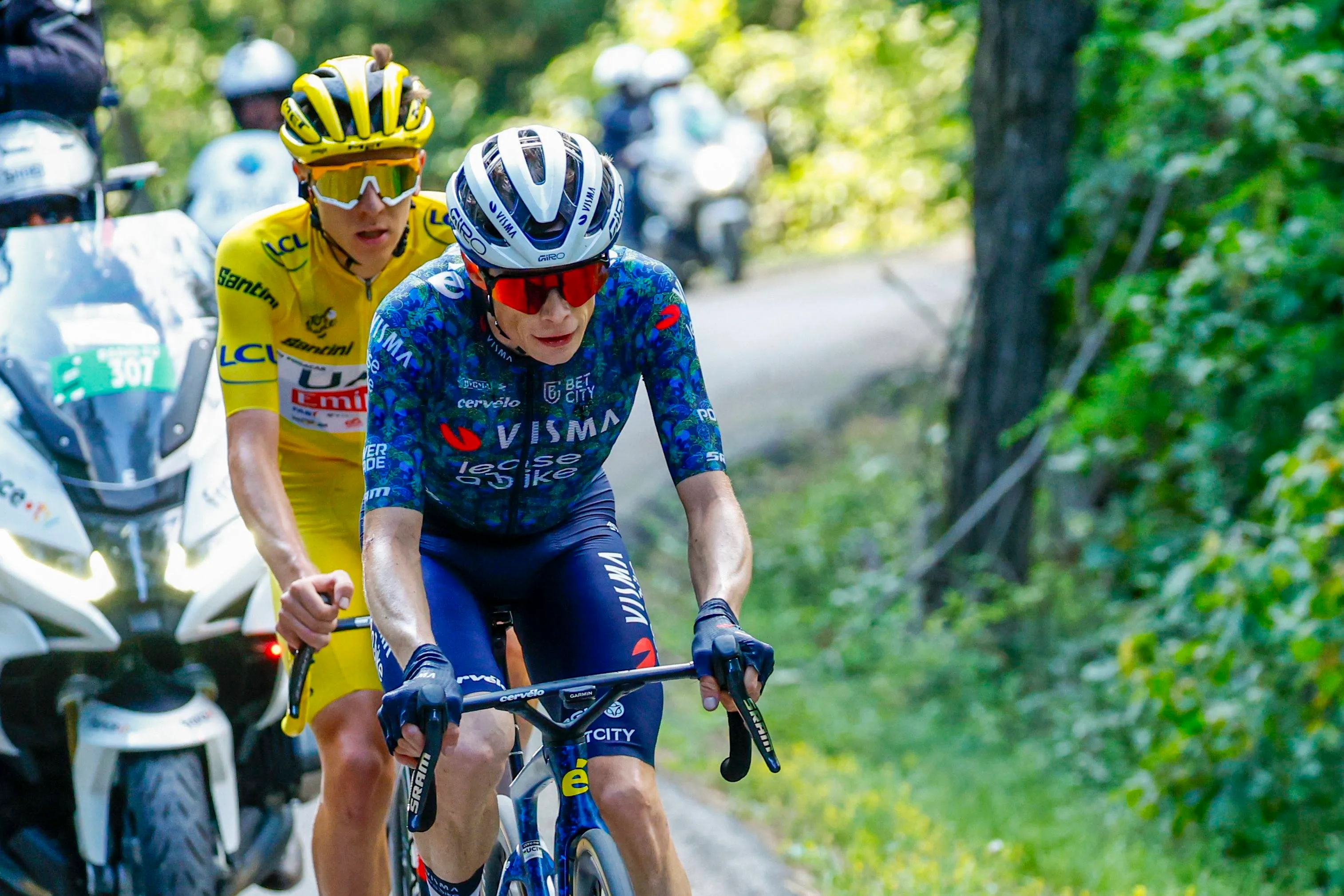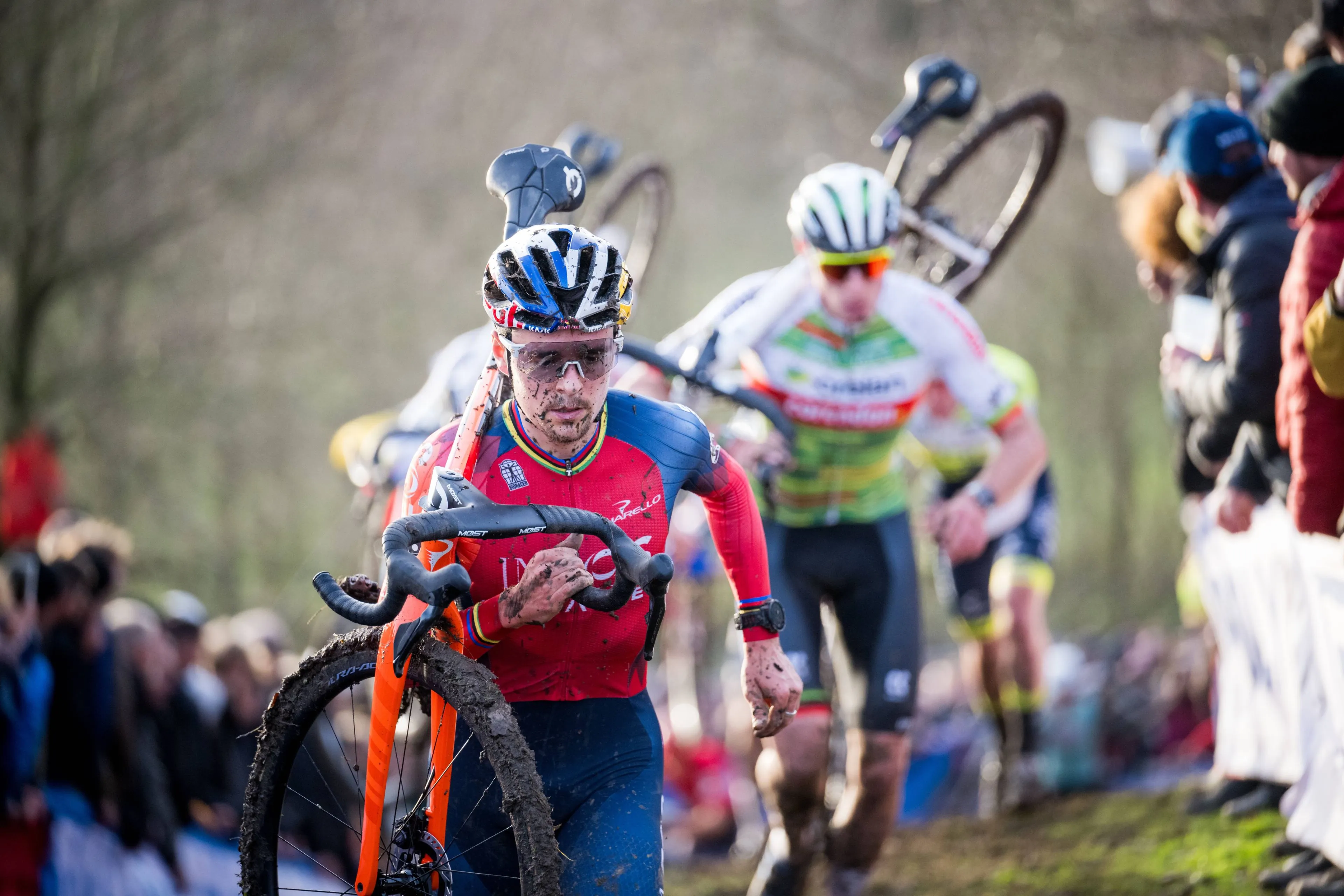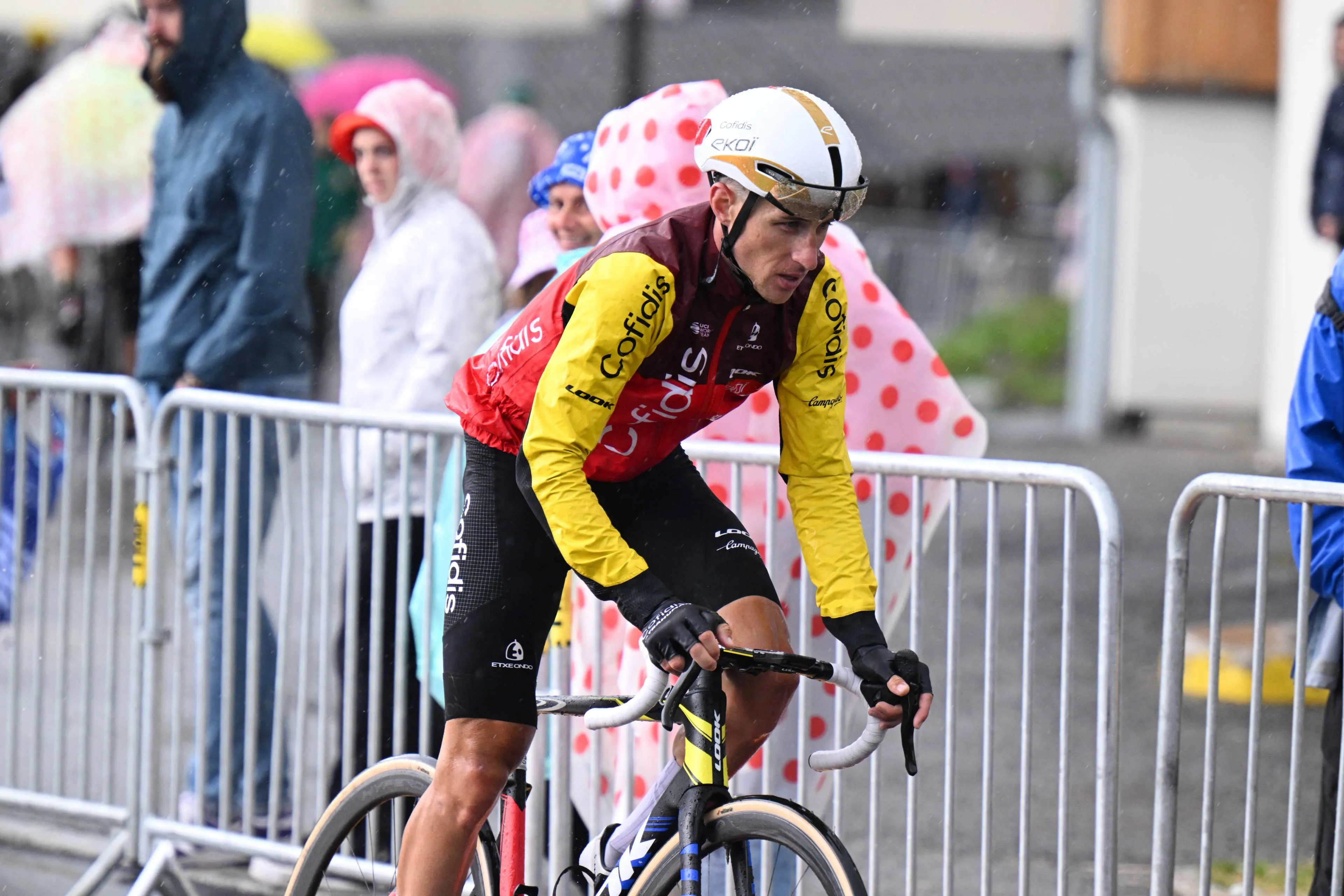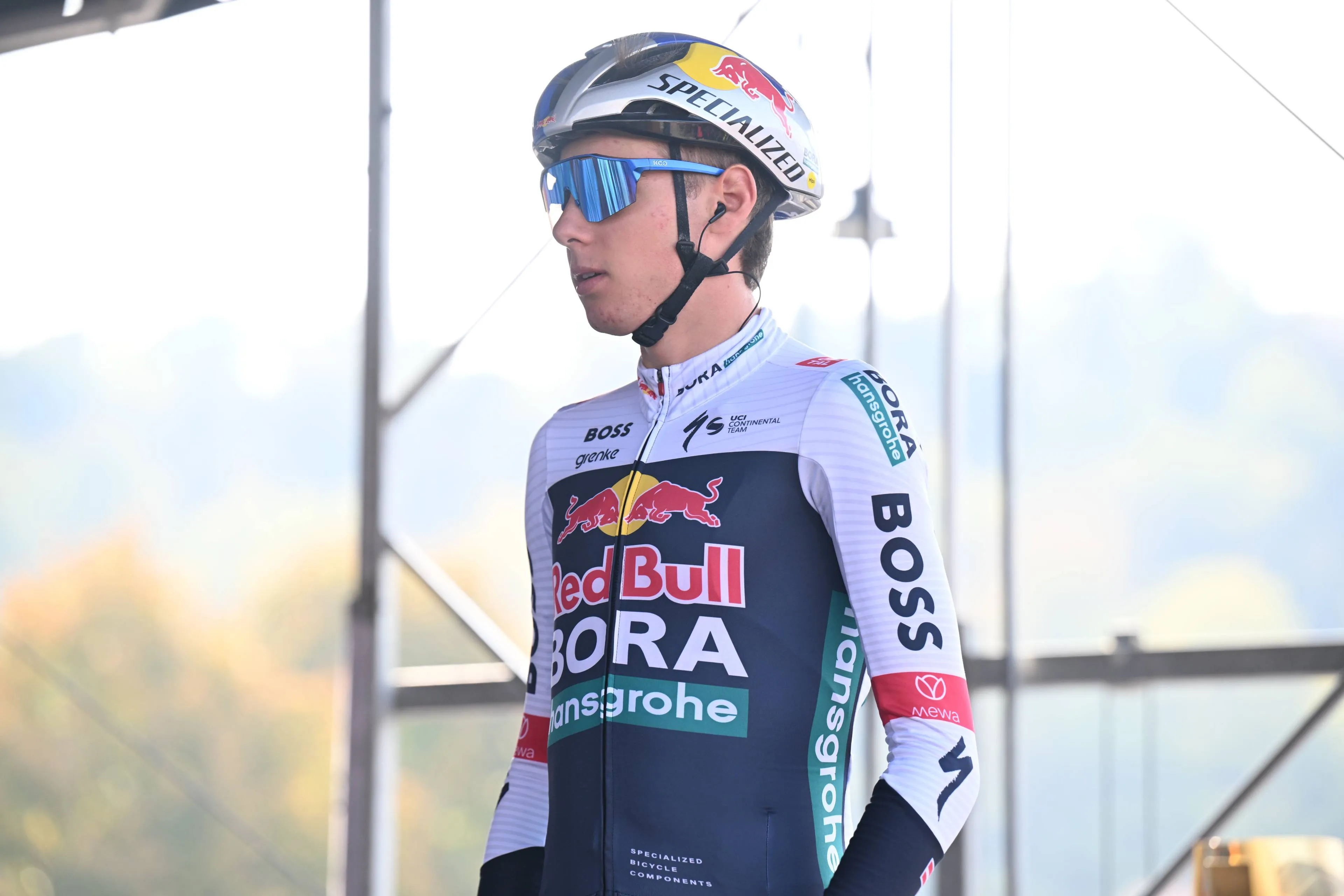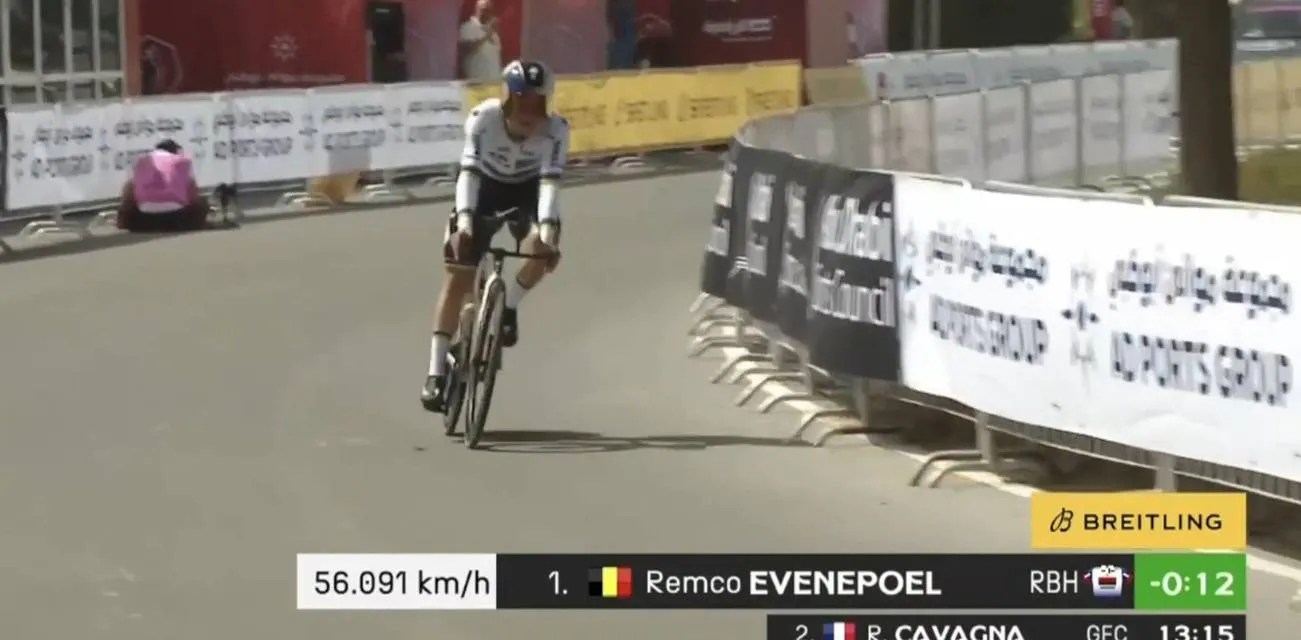ANALYSIS | Tom Pidcock drama, INEOS in decline, ITV losing the Tour de France... What’s happening to British cycling?
CyclingTuesday, 29 October 2024 at 10:24
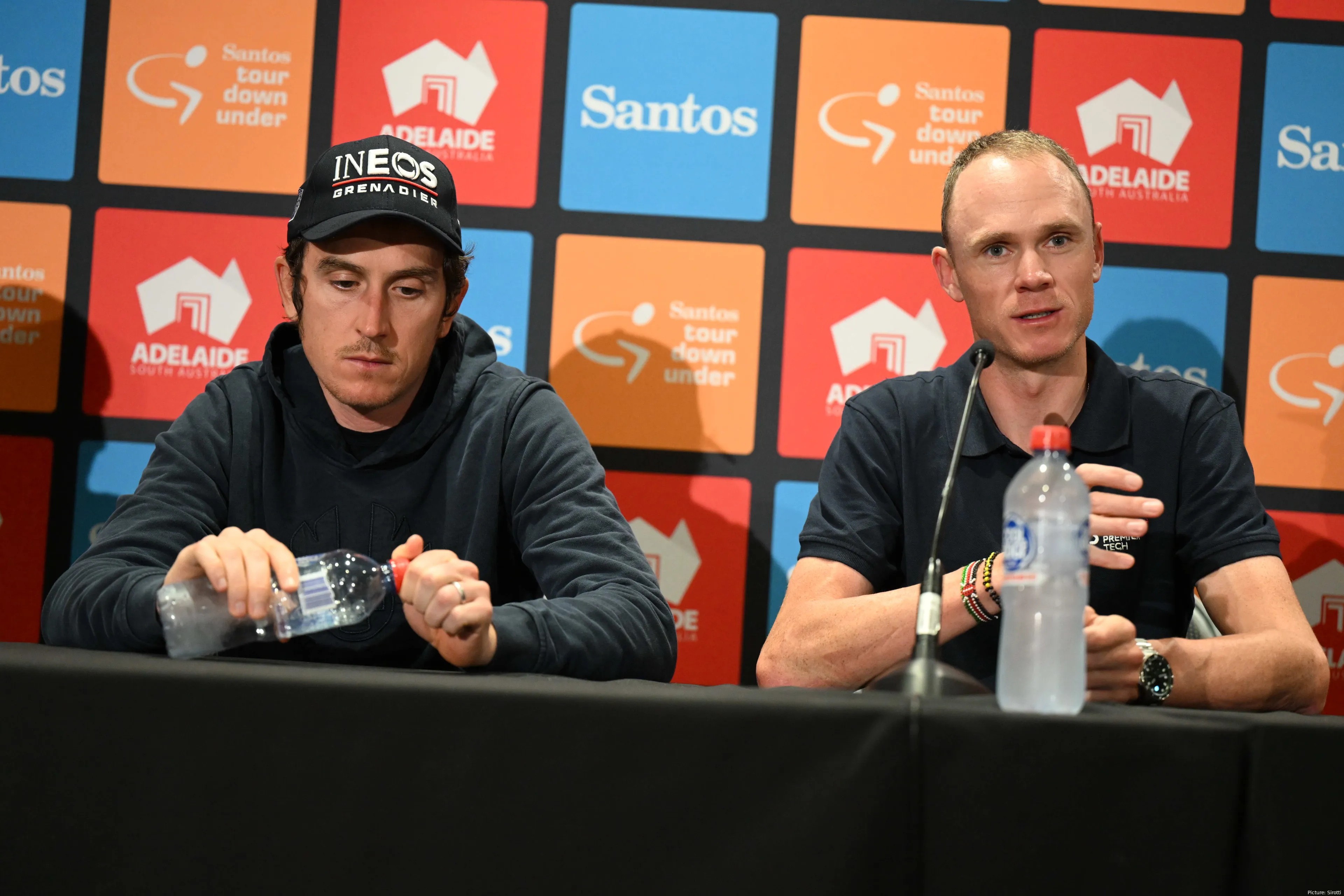
British cycling, once the dominant force in the sport, has
faced a series of setbacks in recent years. The latest blow came yesterday with
the news that, from 2026, Warner Brothers Discovery will be the sole
broadcaster of the Tour de France in Britain, ending the tradition of
free-to-air coverage on ITV. This move signifies a major shift for British
fans, who have enjoyed decades of accessible and distinctive Tour coverage. For
many, ITV's broadcast has become synonymous with the summer spectacle, making the
upcoming 2025 edition the last of an era.
This change is only the latest in a series of challenges for
British cycling in 2024, a year marked by a series of strange setbacks. A look
back reveals how far the sport has fallen in the UK since its heyday in the
2010s.
Read also
The Golden Era: British dominance in the 2010s
The journey to British cycling's peak began in 2008, with a
powerful showing in track cycling at the Beijing Olympics. British cyclists
dominated the velodrome, capturing seven out of ten available gold medals. This
dominance continued into the 2012 London Olympics, solidifying the country as a
global powerhouse on the track. These successes laid the foundation for the
emergence of Team Sky, a team that would revolutionize road cycling.
In 2012, Bradley Wiggins made history as the first British
rider to win the Tour de France. Wiggins’ victory came at a time when his
teammate, Chris Froome, was showing the potential to be the stronger rider.
Many argue that Froome, already demonstrating impressive form, could have
beaten Wiggins if team orders hadn’t been in play. Nevertheless, Wiggins' win
was a landmark moment that ignited a golden era for British cycling.
Read also
What followed was a period of dominance led by Chris Froome,
who captured four Tour de France titles between 2013 and 2017. Froome's
relentless climbing prowess, time trial strength, and tactical intelligence
made him nearly unbeatable in the biggest races.
During this time, Mark Cavendish also shined, cementing his
status as one of the greatest sprinters in history. Mark Cavendish's career has
been deeply intertwined with the history of the Tour de France. Known as the
"Manx Missile," Cavendish became the face of British sprinting
dominance in the 2010s. His remarkable ability to win grand tour sprints saw
him rack up numerous victories, but his crowning achievement came in 2024. At
39 years old, Cavendish finally defeated Eddy Merckx's long-standing record,
securing his 35th Tour de France stage win. This victory was one of the few
highlights in a challenging year for British cycling, providing a nostalgic nod
to the glory days when British riders dominated the sport.
Read also
When did the decline begin?
The decline of British dominance in cycling can be linked to
a number of events, but arguably the most pivotal of these was Chris Froome’s
devastating crash in 2019. While training for a time trial stage at the
Critérium du Dauphiné, Froome suffered severe injuries that nearly ended his
career. He broke his femur, elbow, and ribs, and sustained a collapsed lung.
The recovery was long and brutal, and Froome has never regained his previous
form.
Froome's decline coincided with a similar downturn for his
team, INEOS Grenadiers. Once a superpower in the peloton, INEOS struggled to
adapt to a new era dominated by riders like Tadej Pogacar and Jonas Vingegaard.
Their methodical and controlled approach, which once guaranteed Grand Tour
success, now appeared outdated. The departure of Froome to Israel-Premier Tech
in 2021 did little to reverse the team's fortunes, and they have since
struggled to regain their dominant position in the peloton.
Read also
INEOS's lacklustre performance in 2024, with few victories
in the biggest races, is a stark contrast to their dominance in the 2010s. The
team that once boasted multiple Grand Tour champions now finds itself
overshadowed by emerging talents and teams that have embraced a more aggressive
style of racing. The divorce between Froome and INEOS, far from a fresh start,
seems to have marked the beginning of a decline for both.
The Pidcock drama
Amidst the turmoil at INEOS, Tom Pidcock’s future has become
a huge talking point within the peloton. A two-time Olympic mountain bike
champion and winner of the 2024 Amstel Gold Race, Pidcock was widely seen as
one of the brightest talents for British cycling. His 2022 Tour de France stage
win on Alpe d'Huez hinted at Grand Tour potential, but that promise has yet to
be fulfilled.
Reports suggest that Pidcock’s relationship with INEOS
management has soured, and he has voiced frustrations over his role in the
team. Overshadowed by Carlos Rodriguez, who has become the team's main focus
for Grand Tour leadership, Pidcock’s progression has stalled. Rumours are
circulating that he may leave INEOS, with Gazzetta dello Sport reporting
interest from Q36.5 Pro Cycling Team, backed by Red Bull and keen to secure
Pidcock’s signature. The speculation surrounding Pidcock underscores the
uncertainties facing British cycling’s next generation.
Read also
A lacklustre 2024
The shift in British cycling’s fortunes is not limited to
individual riders and teams; it reflects broader changes in the sport's
landscape. INEOS’s struggles are emblematic of a transition in cycling, where a
new generation of riders has taken centre stage, and traditional powerhouses
have struggled to keep pace. The rise of riders like Pogacar and Vingegaard has
ushered in a more dynamic era, where aggression and adaptability trump the
once-dominant tactics of Team Sky.
Mark Cavendish’s record-breaking moment in 2024, while
historic, feels like the end of an era rather than the start of a new chapter.
Cavendish's upcoming retirement marks the conclusion of a career that defined
British cycling for over a decade. His departure will leave a void in a sport
that has become more competitive and difficult than ever.
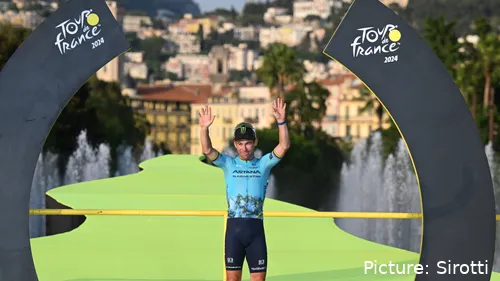
Mark Cavendish made history at the 2024 Tour de France
The upcoming departure of ITV from Tour de France
broadcasting in Britain adds to the sense of an ending. For many fans, ITV’s
coverage was an entry point to the sport, a way to follow the Tour without the
barrier of a paywall. The shift to Warner Brothers Discovery’s pay-to-view
platform will inevitably limit access for some fans, changing the way the Tour
is consumed in Britain and potentially impacting the next generation of fans
and riders.
The story of British cycling’s rise and fall offers lessons
for the future. The success of the 2010s was built on a strong foundation of
investment in track cycling, a focus on youth development, and the creation of
a team, Team Sky, that set new standards for professionalism and support. These
factors, combined with the talents of riders like Wiggins, Froome, Cavendish,
and Geraint Thomas led to a decade of unprecedented success in a sport Great
Britain had for so long faltered in.
Read also
However, the decline in the 2020s highlights the challenges
of sustaining success in a rapidly evolving sport. As INEOS has shown, sticking
to a formula that worked in the past can lead to stagnation. The team’s
struggles reflect a broader trend in British cycling, a reliance on past
successes rather than adapting to new realities. The emergence of a new
generation of riders, who are unafraid to take risks and race aggressively, has
caught British teams and riders off guard.
What’s next for British cycling?
As British cycling navigates this period of transition,
there are both challenges and opportunities. The departure of legends like
Cavendish and the uncertainty surrounding Pidcock’s future signal the end of an
era, but they also provide a chance for renewal. The rise of young British
talents, combined with a renewed focus on development, could see the nation
reclaim its place at the forefront of the sport.
However, British cycling must adapt to the changing
landscape. The dominance of marginal gains and controlled racing that defined
the 2010s is no longer enough. Embracing the dynamic and unpredictable style of
the new generation will be crucial if British riders and teams are to compete
with the likes of Pogacar, Vingegaard and Remco Evenepoel.
Read also
The loss of free-to-air Tour de France coverage on ITV is
another hurdle, as it could limit the sport's accessibility to new fans.
Finding ways to engage the next generation, whether through grassroots
initiatives, improved youth development, or innovative media strategies, will
be essential.
British cycling’s golden era of the 2010s was a time of
dominance and success, led by riders who became household names. Yet, the
decline of stars like Chris Froome, the struggles of INEOS, the drama
surrounding Tom Pidcock, and the changing media landscape signal a time of
uncertainty for the sport in the UK. As the nation grapples with the end of an
era, the challenge will be to adapt, innovate, and inspire the next generation
of British cyclists to once again stand atop the sport’s highest podiums.
claps 7visitors 7
Just in
Popular news
Latest comments
- Completly agree, Jan was in front of van gils, following Pidcock wheel, it was Van gils who tried to force his way through Jan and the barriers. Are they blaming Jan because he belongs to the richest team that win a lot?
 maria2024202418-02-2026
maria2024202418-02-2026 - Clickbait title, not reality-based. Yawn.itsent18-02-2026
- lame, but probably correctantipodeanpedalfan18-02-2026
- Van Gils rode like wanted to get crashed or way too over confident that he was going to overtake Jan before getting pinched. It was obvious were Jan was going/had to go and MVG had the whole road to give an inch so he would have a chance to overtake on the rightjad2918-02-2026
- Double book this showing with the Melania documentary and you might get 100 people to see it...total !frieders318-02-2026
- Simple solution...stay off the barriers since you might get closed out ! Christen's sprint was legal as he was trying to get into the slipstream of Pidcock.frieders318-02-2026
- I believe Remco now understands that he will have issues reaching the top step as long as Tadej is in the Tour, whiles he's a year junior to Tadej he has had his upper body rebuilt twice now from crashes over the last few years. I think he has a chance to win the Tour in a few more seasons, you can only prepare yourself as best you can and try. He said he needs to race some more one week stage races, he should, he can probably win them all. I also believe Remco should aim for another Vuelta if he comes out of the Tour in good form and maybe he should think about the Giro again for next season. This is potentially Tadej's fifth Tour win coming up this year, no one is going to derail that unless he falls off the bike or gets really sick.awp17-02-2026
- Not only will the great narcissist get his voice, but he'll benefit financially from this as well. Who says that cheating and lying your way to victory doesn't pay?
 santiagobenites17-02-2026
santiagobenites17-02-2026 - It'll make a good double feature with the Michael Jackson soft focus biopic.LumbarDeniro17-02-2026
- Yeah, whilst MVDP would never break a bone on the MTB... 😂Sexass17-02-2026
Loading
13 Comments
